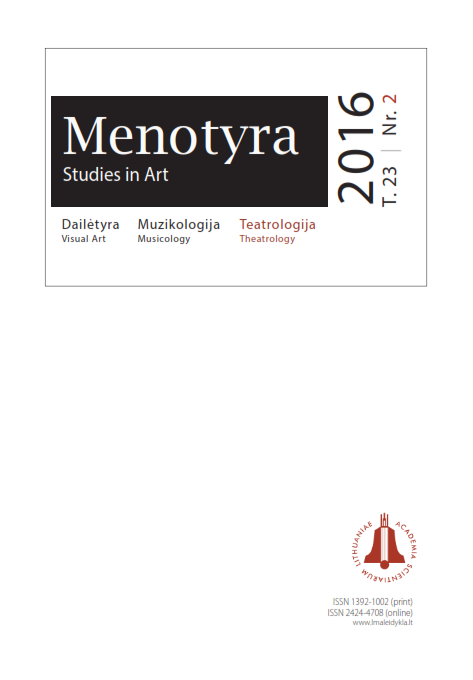(Ne)sukilusios?: trys 8-ojo dešimtmečio Lietuvos teatro moterų Anouilh’ai
(Non-)Rebellious?: Three Jean Anouilh’s plays in the Lithuanian women theatre in the 1970s
Author(s): Šarūnė TrinkūnaitėSubject(s): Theatre, Dance, Performing Arts, Fine Arts / Performing Arts
Published by: Lietuvos mokslų akademijos leidykla
Keywords: women theatre direction; women theatre; woman/women; man/men; feminism; dramaturgy; female hero/female protagonist;, representation of woman; l’écriture féminine; homogeneity/heterogeneity;
Summary/Abstract: Three Jean Anouilh’s plays staged by Lithuanian women theatre directors in the 1970s – “Eury-dice” by Natalija Ogaj (1972), “Medea” by Dalia Tamulevičiūtė (1974) and “Antigone” by Irena Bučienė (1978) – signalled a visible shift in the Lithuanian history of woman’s representation onstage: they discarded the image of a victimized woman for a rebellious one. However, the new rebellious woman was increasingly marked rather as a “non-existing” one – just as a sign of lost or utopian time-space, which also meant a gradual refusal of the rebel’s position. In a way, this ambivalence of rebellion-conciliation or challenge-surrender was echoed on the level of language specificities in these productions: they obviously privileged “feminine” alogic and emotional multi dimensiality instead of “masculine” successive development in the display of the characteristic soft heir protagonists, though in general they tried to follow the authoritative rules of a logo-centric/conceptual/mono-vocal theatre language that resisted “feminine” heterogeneity,fluidity and constant transformativity. Speaking in Hélène Cixous’s terms, Lithuanian women theatre directors discovered, but at the same time as though suppressed the liberating energy of“the laugh of the medusa”.
Journal: Menotyra
- Issue Year: 23/2016
- Issue No: 2
- Page Range: 111-120
- Page Count: 10
- Language: Lithuanian

